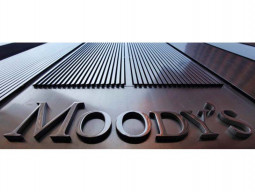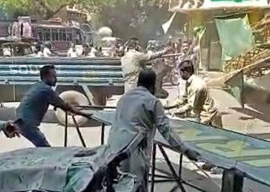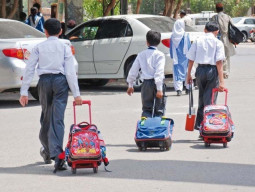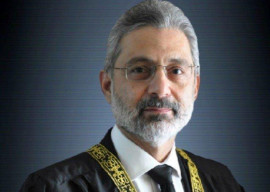
Banking spreads are at an all-time low and industry-specific tax hikes have already taken effect. Yet many banks have smoothly sailed through what some analysts had expected to be a tumultuous period for the banking industry.
One such bank is Habib Metro. With no exposure to consumer banking, Habib Metro prides itself on its trade financing expertise. Its unconsolidated profit for Jan-Sept was Rs6 billion, up a whopping 92% from last year.

While most banking sector analysts attributed the unusual rise in earnings to the bank’s capital gains, Habib Metro CEO Sirajuddin Aziz says that was not the only cause for the bottom line expansion.
Pakistan moves to pacify lenders, wants $1b loan
In a recent interview with The Express Tribune, Aziz said the ‘engine’ of the bank has performed exceedingly well during the last nine months. “Even if you ignore capital gains, provisions and the workers welfare funds, core income registered a growth of 44%,” he said.
Pakistani banks became conservative lenders following the 2008 financial crisis. As a result, lending to the private sector shrank while money raised through deposits ended up invested in government securities.

Habib Metro has been no exception to the industry-wide trend. Its deposits increased at an annual pace of 17.6% in the five years ending on December 2014. The corresponding rise in its investments and advances remained 14.7% and 5.6%, respectively, over the same five-year period.
Does it not suggest the bank has been accumulating deposits and investing the same in riskless government papers while holding back on private-sector lending?
“Who do you want me to lend money if entrepreneurs are not putting up any projects? No project works with debt (alone). It has to be a healthy combination of equity and debt,” Aziz said.
Referring to the fiduciary responsibility of safekeeping depositors’ money, he defended the conservative lending policy by saying no wise banker would squander deposits away for higher gains.

One consequence of it was that the government emerged as the singularly huge borrower from the banking industry that has crowded out the private sector for the last seven years. Out of total outstanding government securities of Rs7.4 trillion, almost 80% were held by scheduled banks at the end of September.
Aziz says the government will have to vacate space for the private sector to ensure its easy access to credit. “If the fiscal deficit continues to be the way it has been, then growth of the private sector (credit) will always remain stifled.”
The perfect epitaph
Aziz says the epitaph of trade financing bank is a perfect one for Habib Metro. While other newly launched banks in the early 1990s opted for commercial lending, Habib Metro went for trade financing ‘full steam’.
Habib Metro established itself as a trade financing bank in its early years by capturing the clientele that operated out of Karachi’s Jodia Bazaar. Back in the day, it constituted roughly 40% to 45% of Pakistan’s total trade activity, according to Aziz. “We had people who were experts in that area. We captured that market … by offering a combination of trade products that were linked up with the commercial lending activity,” he said.
When Aziz joined Habib Metro on January 1, 2012, as CEO, it was largely a Karachi-centric bank with most of the branch network in and around the southern port city, he says.

But as with every commercial hub, any economic activity that happens in Karachi has another leg somewhere else. So while the transaction would take place through Habib Metro, another financial institution got the benefit of money retention.
Asian Development Bank approves $6b loan for Pakistan
“We were missing out on the second leg of the transaction. I said, let’s watch the money flow in the economy and start plotting our branches there. So we went on a massive expansion programme in the north, particularly Punjab and K-P,” he said, adding that 65 of the 90 branches that he opened in the last three years are in the north of the country.
“We want to expand from textiles to other commodities and industries. That’s where we want to increase our lending book going forward,” he said.
The writer is a staff correspondent
Published in The Express Tribune, October 26th, 2015.
Like Business on Facebook, follow @TribuneBiz on Twitter to stay informed and join in the conversation.









































COMMENTS
Comments are moderated and generally will be posted if they are on-topic and not abusive.
For more information, please see our Comments FAQ